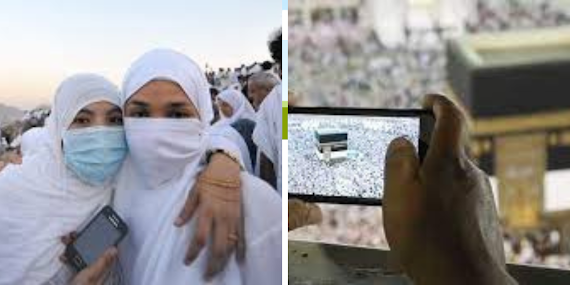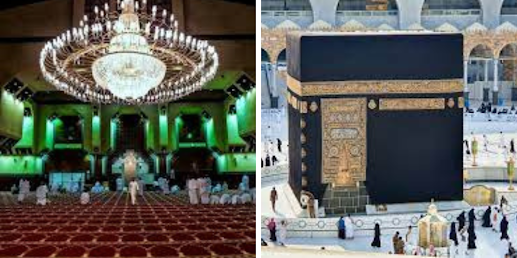Sayyida Zainab Mosque in Damascus Syria
Sayyida Zainab Mosque in Damascus Syria :
Sayyida Zainab Mosque in Damascus, Syria is a very important site of visitors for Shia Muslims. The mosque is named after Zainab bint Ali, the daughter of Imam Ali and the granddaughter of the Prophet Muhammad. Zainab is considered a role model for Muslims, particularly for her bravery and piety in the face of adversity.
The mosque has undergone several renovations and expansions over the centuries, and today it is a large complex that includes the mosque itself, as well as a shrine, a courtyard, and other facilities.
Muslims who visit Sayyida Zainab Mosque perform a variety of activities, including there that are as follows:
- Praying: The mosque is primarily used for congregational prayers, and visitors are encouraged to join in the regular prayer services.
- Ziyarat: Many pilgrims visit the mosque specifically to perform ziyarat, which involves visiting the shrine and paying their respects to Zainab and other holy places.
- Lectures and speeches: The mosque often hosts lectures and speeches by religious scholars, which can cover a range of topics related to Islam and spirituality.
- Charity work: The mosque is also involved in various charitable activities, such as providing food and shelter for those in need.
- Cultural events: The mosque hosts a range of cultural events throughout the year, including religious festivals and celebrations.
Overall, Sayyida Zainab Mosque is a vibrant centre of religious and cultural activity for Shia Muslims, and it plays an important role in the spiritual life of many believers.
Praying at sayyida Zainab mosque
Praying at Sayyida Zainab Mosque is a significant experience for Shia Muslims, as the mosque is believed to be the site of the tomb of Zainab bint Ali, the granddaughter of Prophet Muhammad. Here is some information about praying at Sayyida Zainab Mosque:
- Congregational prayers: The mosque hosts regular congregational prayers, including daily prayers, Friday prayers, and special prayers during religious festivals. These prayers are led by an imam and include a sermon, or khutbah, which can offer guidance and inspiration to the community.
- Separate sections for men and women: Like many mosques, Sayyida Zainab Mosque has separate sections for men and women to pray. Women typically pray in an enclosed area .
- Respectful attire: Visitors are expected to dress modestly and respectfully when entering the mosque.
- Ritual cleanliness: In Islam, ritual cleanliness is important for prayer. Visitors to the mosque are expected to perform wudu, or ablution, before praying.
- Reverential behaviour: Visitors to the mosque are expected to behave respectfully andtalking loudly, using electronic devices, or engaging in other disruptive behavior is generally considered unsuitable
Generally, praying at Sayyida Zainab Mosque can be a deeply meaningful experience for Shia Muslims, as it provides an opportunity to connect with the teachings and the wider Islamic community.
ziyarat at sayyida zainab mosque
Performing ziyarat, or travels, at Sayyida Zainab Mosque in Damascus, Syria is a significant experience for Shia Muslims. Here is some information about performing ziyarat at Sayyida Zainab Mosque:
- Visiting the shrine: The shrine is believed to be located inside the mosque and is decorated with beautiful calligraphy and artwork.
- Reciting prayers and supplications: Visitors to the shrine often recite prayers and prayers may be recited in Arabic languages.
- Making offerings: Many visitors to the mosque make offerings, such as candles, flowers, or food, as a way of expressing their devotion and seeking blessings.
- Seeking intercession: Shia Muslims often seek intercession, or shari'ah, from holy figures like Zainab bint Ali.
- Reflecting on the life of Zainab bint Ali: Ziyarat at Sayyida Zainab Mosque is also an opportunity to reflect on the life and legacy of Zainab bint Ali, who is revered for her bravery, piety, and devotion to God.
Ziyarat at sayyida zainab mosque
Performing Ziyarat at Sayyida Zainab Mosque is believed to be the site of the tomb of Zainab bint Ali, the granddaughter of Prophet Muhammad and a revered figure in Shia Islam. Ziyarat is a spiritual journey that involves visiting the tombs of holy figures, praying at important religious sites.
Overall, performing Ziyarat at Sayyida Zainab Mosque is a deeply spiritual experience for Shia Muslims, providing an opportunity to connect with the legacy of Zainab bint Ali and seek blessings and guidance from this revered figure. It is a reminder of the importance of faith, devotion, and piety in the lives of Muslims.
Lectures and speeches at sayyida Zainab mosque
Sayyida Zainab Mosque is an important religious site for Shia Muslims, and it is a place where lectures and speeches are often given by religious scholars and leaders and topics related to Islam, the life and legacy of Zainab bint Ali, and the spiritual and social issues facing Muslims today.
Religious Education: One of the primary functions of Sayyida Zainab Mosque is to provide religious education to Muslims. Lectures and speeches may cover a wide range of topics related to Islamic teachings, including Quranic interpretation, Hadith, Islamic law, and Islamic ethics.
- Commemorating Special Occasions: Sayyida Zainab Mosque is also a place where Muslims gather to commemorate special occasions and events in Islamic history. For example, the martyrdom of Imam Hussain, the grandson of Prophet Muhammad.
- Addressing Social Issues: Religious leaders may also use Sayyida Zainab Mosque as a platform to address social issues facing Muslims and society at large such as poverty, inequality, and injustice, and provide guidance on how Muslims can work towards creating a more just and equitable society.
- Offering Spiritual Guidance: Sayyida Zainab Mosque is a place where Muslims can seek spiritual guidance from religious leaders. Lectures and speeches may provide guidance on how to deepen one's faith, develop a stronger connection with God.
Overall, lectures and speeches at Sayyida Zainab Mosque serve as an important source of religious education, spiritual guidance, and community building for Shia Muslims.
Charity work at sayyida Zainab mosque
Charity work is an important part of Islamic practice and is encouraged in the teachings of the Quran and Hadith. Here are some examples of charity work at Sayyida Zainab Mosque:
- Food Distribution: One of the most common forms of charity work at Sayyida Zainab Mosque is food distribution especially during special occasions such as the holy month of Ramadan, where Muslims fast during the day and break their fast at sunset. During this time, food is distributed to the poor and needy in the community.
- Shelter for the Needy: The mosque also provides shelter for those in need, especially during the colder months of the year. specially for those who in need and in poverty.
- Medical ord their childs educationAssistance: The mosque may also provide medical assistance to those in need and for those who cannot afford it.
- Education: The mosque may also provide education to children who cannot affor specially for poor families children who cannot afford their cZakat Collection and Distribution: The mosque may also hilds education.
- Zakat: collect Zakat, which is one of the five pillars of Islam and requires Muslims to give a portion of their wealth to those in need. The mosque may collect and distribute Zakat to the poor and needy in the community.
Overall, charity work provides an opportunity for Muslims to give back to their community and demonstrate compassion and generosity, as taught in Islamic teachings.
Cultural events at sayyida Zainab mosque
Sayyida Zainab Mosque is primarily a religious site, but it also serves as an important cultural centre for the Muslim community, particularly the Shia community.
Celebrating Islamic Festivals: Sayyida Zainab Mosque is an important site for Shia Muslims, who celebrate many Islamic festivals such as Eid al-Fitr, which marks the end of the holy month of Ramadan, or Ashura, which commemorates the martyrdom of Imam Hussain, the grandson of Prophet Muhammad.
Islamic Art Exhibitions: Islamic art is an important part of Muslim heritage, and the mosque may host art exhibitions showcasing traditional Islamic calligraphy, painting, and other forms of Islamic art.
- Religious Lectures and Recitals: While primarily religious in nature, religious lectures and recitals can also be considered cultural events.
- Cultural Workshops: The mosque may also host cultural workshops, which provide opportunities for visitors to learn about traditional Islamic crafts, such as calligraphy or carpet weaving.
Overall, cultural events at Sayyida Zainab Mosque provide an opportunity for visitors to appreciate and celebrate Islamic heritage and culture.




Comments
Post a Comment